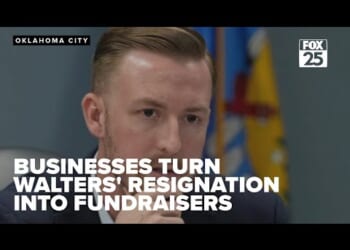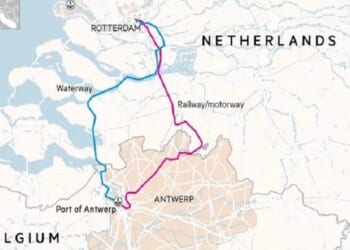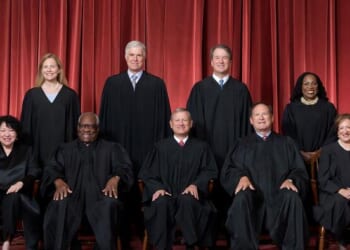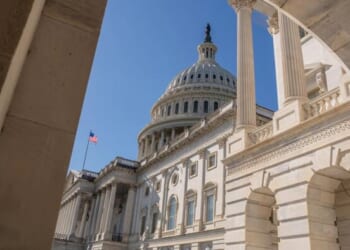Our diocese has asked the priests to promote a short survey about the laity to the faithful for a projected USCCB Pastoral Letter on the Laity. I wish that there would have been a survey about what kind of pastoral letters we need from the Bishops’ Conference, for I think the vocation crisis might be a topic of great interest and importance. I suppose the Pastoral Letter on the Laity will address the growing trend of lay pastoral “coordinators” in priest-less parishes, which is having a moment.
In some ways, the coordination by laity is a throwback to the pioneer past of the Church in America. However, the small communities who were building community and church buildings and sacramental practice for their families did not hire someone to be a sort of substitute priest. The itinerant priests, who were like the Protestant circuit preachers, were still leaders and formators of the Catholic community and not just Mass priests or sacramental providers. In the rust belt, pastoral coordinators are tending to ever smaller congregations in some historic (and often, beautiful) churches, and it is hard to escape the suspicion that it is a program of downsizing, part of the managed decline of once densely Catholic dioceses.
“Professional” lay “coordination” of parishes has many loose ends. What kind of training and continuing formation is given to the lay coordinator? The emphasis on pastoral or formation leaderships would be interesting in terms of an evangelization project, but sometimes what is more necessary is management expertise in business-like practices. Parishes are not businesses, but old physical plants require much attention, and thin capital reserves need fiscal acuity and creativity. I think that priests might be able to be pastors of more than one parish if those burdens were taken care of by persons, perhaps retired professional management types, who could coordinate more than one congregation’s issues.
However, the questionnaire for the Pastoral Letter does not seem to address such concerns. It is written in a kind of “corporation” prose that could have been helped by AI. The first question is: “How does your baptismal identity impact your engagement with Church and society.”
Perhaps it is my limited experience that makes me think that most lay people will not have very eloquent answers to this question. Why couldn’t we start with something about Jesus? What is your relationship with Him, how have you felt the call to discipleship? And then from Jesus we could talk about the necessary relationship with the Church that Jesus founded.
“Engagement with society” is quite (dare we say “too”) broad conceptually. What about, “How is your discipleship connected to your everyday life? What are the specifics of your following Jesus and taking up the cross?” The next question could be tightened up, also: “How do you feel co-responsible for the work and mission of the Catholic faith?” Wouldn’t the correct word be “Church,” not “faith”? But are we asking “feeling” questions or data questions? “Feeling” co-responsible and understanding our participation in the Body of Christ might be two different things.
The potential for ambiguity in the survey continues: “Where do you see the Holy Spirit at work in your relationship/engagement with the Church?” I suppose the “relationship/engagement” word combo is supposed to be a fine kind of distinction. Again, something about Jesus might be to the point. Even if you were asking, “How do you understand the Holy Spirit working in your life and what has that to do with your parish/local community of faith?” it might provoke more concrete responses.
“What are your joys, hopes and visions for the role of the laity within the Church and society?” is the next question. I know this echoes Gaudium et Spes, but it reminds me too much of the campaign rhetoric (like “Hope and Change”). We are all members of the Church, although our activity “within” the Church should be of our whole person and not a category of involvement. The laity are the Church, just as the clergy and religious are, but there seems a note of alienation or at least differentiation in “activity within the Church.” It’s a nuance and perhaps a false connotation I am responding to, but it is awkwardly put.
So is the next shot, in my opinion: “How do you primarily interact with lay ecclesiastical ministers, formators and lay apostolate leaders?” This is perhaps the real agenda of the designers of the survey. My first reaction is what is the use of the adverb “primarily”? I think they are looking for something like “generally” here. Can you react “secondarily” to professional lay leaders? Leaders of “lay apostolates” seem to be in another category for these other coordinators, formators, etc. People involved in lay apostolates are usually volunteers with very specific roles.
De-clericalizing pastoral care is a more complicated thing than just filling roles. When Catholics talk about their parishes, don’t they usually ask who the pastor is? Are they now to ask who the lay ministers, formators, etc. are? If deacons sometimes encounter resistance in their ministry (e.g., “I want a priest for my child’s baptism,” or “Why is the priest not preaching?”) are we so sure that the parish can be reimagined with a coordinator who “hires” sacramental provider priests? Wouldn’t people respond better to a deacon as a coordinator. Deacons are usually professionals with other capacities, but couldn’t we hire those who are retired from their original profession?
“What concerns might you have around lay ministry, formation, apostolates or the church workplace?” In terms of this essay, I would say, “see above,” but it is a catchall kind of question, mixing apples and oranges. And why do we say “church workplace” and not “parish”?
Developing lay pastoral ministry as a kind of substitute for ordained ministry is my worry here. Laity should participate in Church life, without a doubt. But isn’t the focus of lay discipleship in the world? Isn’t a quasi-institutional lay ministry a more complicated thing much beyond night school certification as lay ministers? Do lay coordinators have to promise something to the bishop, or do merely contractual requirements take care of pastoral care of a community?
In Catholic schools we have “teacher-ministers” who really aren’t sometimes because scarcity of personnel means low formation of those in the classrooms. Is the vision of the pastoral coordinators wedded to a tacit acceptance of what is really extraordinary in Catholic life: a growing Catholic population and a diminishing clergy in a non-missionary context.
Which is why I would like a Pastoral Letter about the vocation crisis.
This article was originally published on Crisis Magazine.













